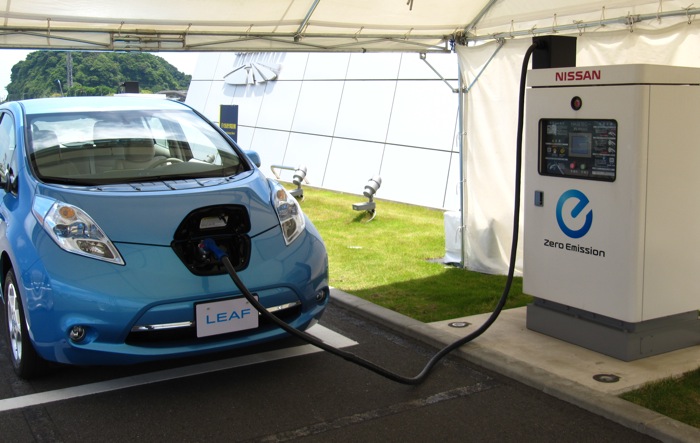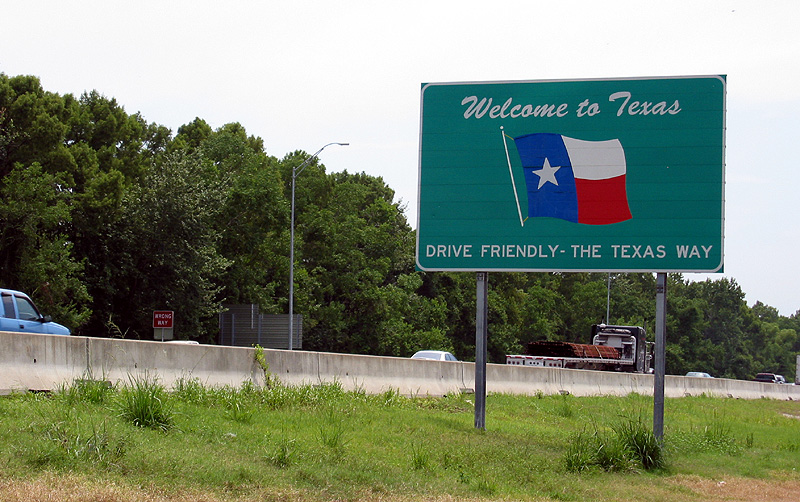NRG Energy has opened its first eVgo direct-current electric vehicle charging station in Dallas, Texas, as part of a privately funded 70-station network in the Dallas/Fort Worth area, the company announced.
The chargers are designed to be “fast-chargers,” which use a 480-volt direct electrical current to charge an electric vehicle enough to drive 30 miles in less than 10 minutes. NRG Energy also plans to open stations that feature a 240-volt Level 2 charger that gives an electric vehicle enough charge to go 25 miles in an hour.
Electric vehicles have been criticized for their lack of range — for example, the Tesla Roadster is only supposed to reach 211 miles before running out of juice. That’s not enough to get from Houston to Dallas, which is around 250 miles.

2011 Nissan Leaf at quick-charging station
So dotting the corridor with electric vehicle charging stations will alleviate some of the concerns about being able to travel longer distances within the state.
NRG Energy plans to install an extra 50 chargers in Houston and additional chargers along the Interstate 45 corridor that stretches from Dallas to Houston.
The company charges its members a flat monthly rate for access to the chargers, with a cheaper plan for the slower chargers and a more expensive plan for the faster chargers that are available in more public areas — such as outside a Walgreen’s drug store.
Still, 10 minutes is a long time to wait for 30 miles of driving power when it takes around 5 minutes to fill up a gas tank for internal combustion engine vehicles that can get more than 30 miles per gallon.

Welcome to Texas
The slow charging times are one of the tougher selling points for electric vehicles — and clearly a sore point that NRG Energy is trying to alleviate by widely publicizing its “fast” chargers. It still isn’t clear how well received the charging stations and electric cars will be in Texas and other states that feature wide gaps between major cities.
But the technology is still in its infancy — and it’ll probably be easier and faster to charge an electric vehicle in the future.
This story, written by Matthew Lynley, was originally posted on VentureBeat's GreenBeat, an editorial partner of GreenCarReports.
+++++++++++












